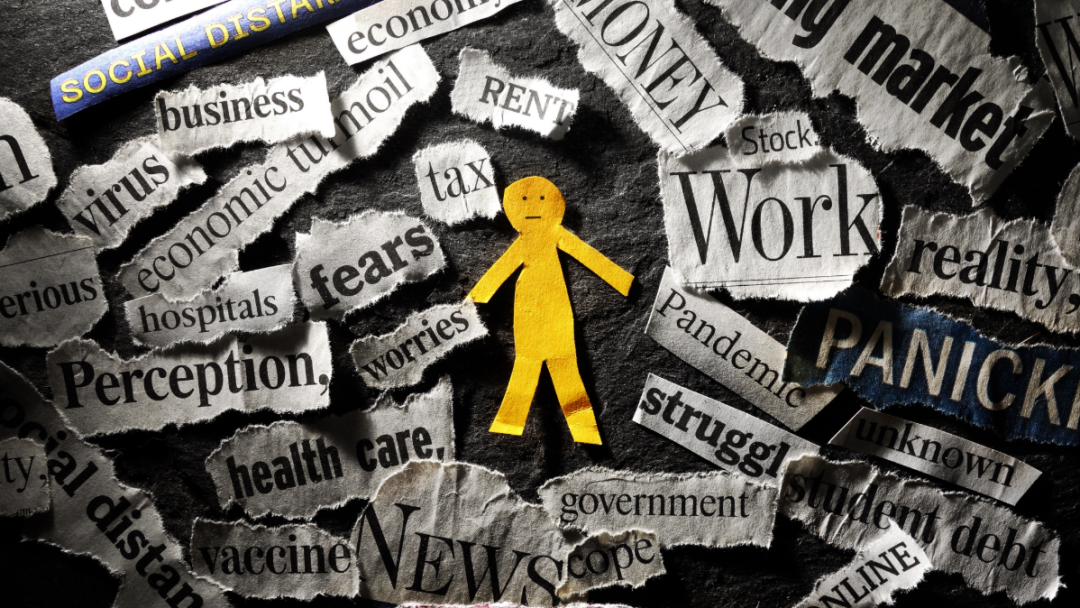
How often do we worry about things in our lives? How much time do we spend dwelling on things with which we cannot affect the outcome?
We’re biologically programmed to do it. When we worry, our adrenaline spikes, our heart rate and breathing increase, our blood pressure rises, and body and mind are kicked into high gear ready to confront what may be coming around the corner. It gives us the best possibility to prepare and react to unknown and dangerous circumstances.
Worry and anxiety are natural. But when that worry and anxiety begin to tear apart our sense of self- worth, our self-esteem, and our quality of life, it becomes the disease we’ve come to see so readily in our lives. Prolonged worry and anxiety can even affect our brain chemistry, disrupting the emotional processing center in our brain.
Then there are the wide range of effects that anxiety has on us. Moodiness, irritation, insomnia, being constantly tired, withdrawn, quick to violence. It can take the shape of poor self-esteem, hopeless- ness, a sense of worthlessness. Prolonged and frequent anxiety can affect our quality of life.
So it makes sense that there are no shortages of strategies in psychology to help those who struggle with toxic and overwhelming anxiety. Most strategies focus not on getting rid of worry, but discovering ways to manage it. Anxiety is, after all, natural. You don’t make it disappear altogether.
Methods for managing anxiety can range from adding in more time to rest, to meeting with a therapist regularly, to finding ways to create new personal boundaries. It can involve learning new, intentional ways to process information, creating safe places for reflection, and even utilizing meditation.
I help manage my own anxiety with exercise. I hit the gym or ride my bike. I also take a strict Sabbath on Fridays.
There are passages in the Bible like Philippians 4:6 where Paul tells the congregation at Philippi not to ‘worry about anything.’ And I always laugh to myself. Yeah right, Paul! If only it was that simple. Some theologians have interpreted this passage to mean that Christians should never have to worry about anything, ever. If God’s got everything in God’s hands, then worry should just disappear. To that end, there are some Christian circles that will tell you that therapy and psychology is a pointless endeavor. All you need is Jesus. Vaccines are a scam. All you need is Jesus. Anxiety is easily fixed with prayer and reading the Bible. No management necessary. Just Jesus.
Try telling a child who watched her parents die of starvation not to worry about her own well- being...that all she needs is Jesus. Tell the parent whose child lies in a coma in the hospital not to worry. Tell the man waiting on news from his job interview, a job he needs to keep the roof over the heads of his family. Tell him he just needs to go to church.
But I think that misses the point of Paul’s words. Paul isn’t delusional. He knows that worry is a natural thing, and he also knows the insidious power that worry and anxiety can hold over people. He knows how it can destroy self-worth and fruitful living. He can envision how it can even taint and diminish the church if people let it.
Think about the church today. How many churches have become consumed with worry for their own survival, about their decreasing membership and budgets? How often does that unhealthy worry lead to stagnant ministry, a perpetual feeling of hopelessness? How often does it lead to a doubling down of patterns and forms of ministry that no longer serve, or unrealistic expectations of new pastors?
What Paul knows is the end game. In the end, love wins. In the end, God is working for good. God will not abandon us. All our anxiety and worry will not change who God is and what God is doing. And we are part of what God is doing. In fact, the Church is God’s mechanism for sharing good news with the world. It is the Body of Christ.
So bring your fears, your worries, and your anxieties to God in prayer. God cares. And you matter.
Does that make our worries and anxieties go away? No. Not fully. But perhaps knowing that there is someone who loves us, who cares about us, who has shown we are worthy of love and attention helps to frame our understanding of self. It helps us put into perspective all the things happening to and around us. It has the potential to give us both identity and purpose. And it reminds us that we don’t handle the craziness of life by ourselves. We don’t have to let our worry claim our lives, for we have already been claimed by another who loves us without measure.
With care,
Pastor Adam

